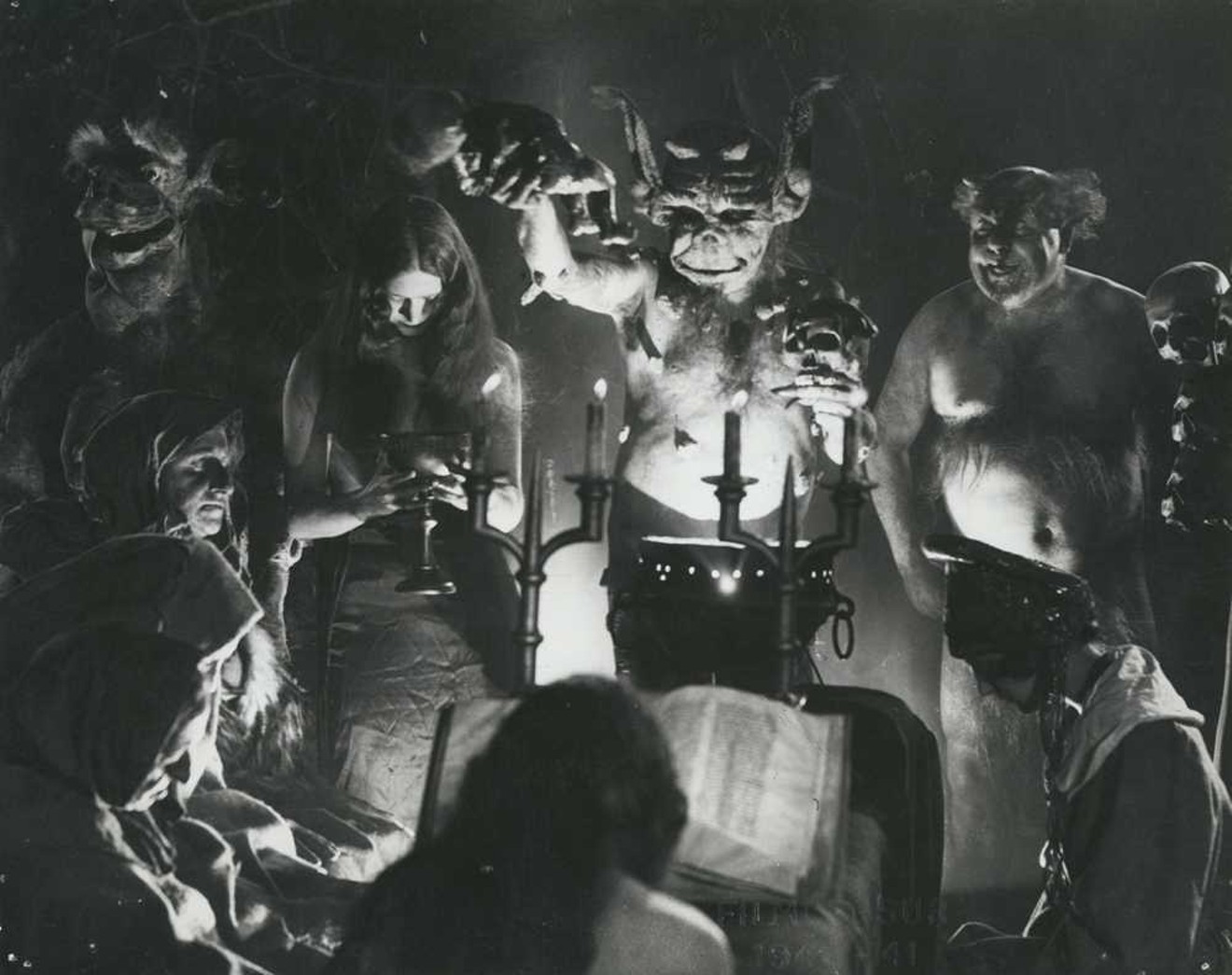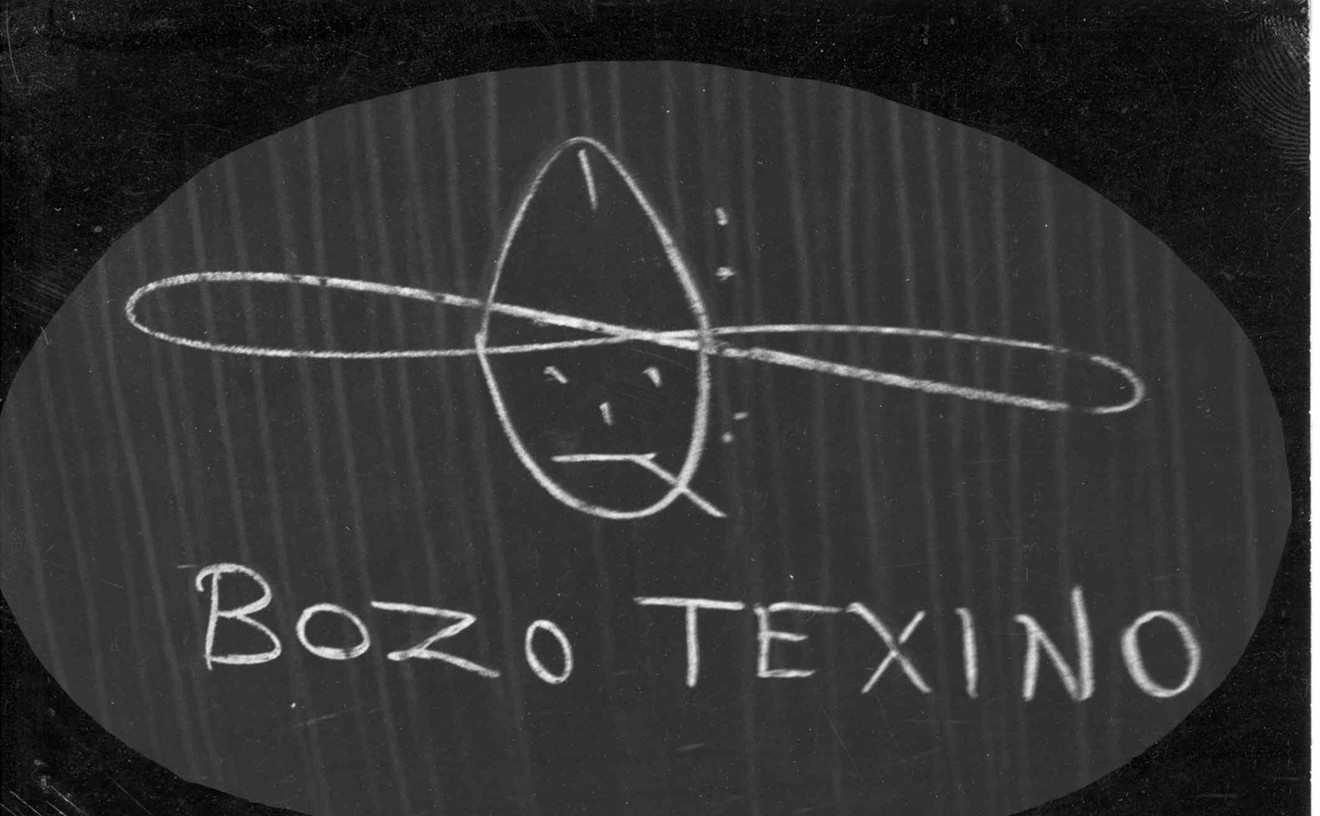This Tuesday night, February 21, at Alamo Drafthouse, Billy Overton, the founder of experimental electronic band Loanword, will perform a live film score for Swedish filmmaker Benjamin Christensen's most acclaimed work, Häxan. Often considered an influential horror film, Häxan, released in 1922, is really a documentary about how superstition and lack of understanding of medical and psychological conditions can lead to the type of hysteria that resulted in the late-medieval-era witch hunts.
The cinematography, Christensen's use of stop-motion animation and the film's imagery — particularly in its second half, with the depictions of demons dancing at the Witches' Sabbath and the image of the Devil (played by Christensen) — exerted a strong influence on later horror films. Upon its release, Häxan was banned in the U.S. and other nations because it allegedly portrayed torture and perverted sexual acts. The film went on to achieve cult status, and in 1968, a shorter version was released with narration by William S. Burroughs and a jazz score from a quartet that included percussionist Daniel Humair and frequent Zappa collaborator Jean-Luc Ponty.
In scoring the film, Overton used various synthesizers and keyboards to play both selections of Frederic Chopin and original compositions made for the screening.
“I could get something satisfying out of just piano, but the imagery of Häxan lends itself well to dirty, nasty synthesizer sounds,” says Overton.
An interesting choice, because in 1922, critic Berlingske Tidende advised against pairing the movie in its original silent format with the music of Wagner and Chopin, because its impact would be too strong. We spoke with Overton about the film's social commentary and its relevance for the current era.
Westword: Häxan has the reputation of being an especially effective early horror film, but it was based more on Christensen's reading of the notorious witch-hunter manual, The Malleus Maleficarum, a true artifact of an oppressive culture. What social criticism did you glean from the film?
Billy Overton: The film explicitly acknowledges on the title cards that it was dangerous to be an ugly or pretty woman — particularly old and ugly and young and pretty. That's what some of the vignettes involve. A younger woman accuses an older woman of being a witch and gets dragged into it herself. The title cards give you some sort of history lesson on what people believed, and then you see it played out. It also talks about how the people in that time believed it so much that to them it was real, and these hyper-real depictions are what they felt reality was. They talk about how they would touch the backs of people they thought were witches, and if they couldn't feel it, it was the mark that their master's whip had given them invisible scar tissue. But we have a physiological explanation today. Also, when you put people through horrible torture, it does a number on the mind, so who knows whether they know at that point that they're confessing things that they believe about themselves or what they think the torturers want to hear.
What resonance does the movie have for our current political climate?
A lot of women in the country today feel very much threatened. I think maybe how someone could start rationalizing the horrible violence with the excuse of witches is very much rooted in rigid gender roles. The expectations for women are so bizarre and so strict that really the reaction to define those is violence. So it's an excuse that taps into people's religious beliefs. In that way, I think it's a helpful reminder of how bad that can get and how societies are sort of susceptible to being given that type of scapegoat. The end result of that is violence.
I think there's also a pro-science message in the film, by saying that the symptoms are the results of psychological disorders and facts of human life that are attributed to this collective myth about witches. Again, clearly the approach should be understanding and medical care and not threatening and torture.
Häxan screens Tuesday, February 21, at 7 p.m. at the Alamo Drafthouse, 720-588-4107, $7.
[
{
"name": "Air - MediumRectangle - Inline Content - Mobile Display Size",
"component": "12017618",
"insertPoint": "2",
"requiredCountToDisplay": "2"
},{
"name": "Editor Picks",
"component": "17242653",
"insertPoint": "4",
"requiredCountToDisplay": "1"
},{
"name": "Inline Links",
"component": "18838239",
"insertPoint": "8th",
"startingPoint": 8,
"requiredCountToDisplay": "7",
"maxInsertions": 25
},{
"name": "Air - MediumRectangle - Combo - Inline Content",
"component": "17261320",
"insertPoint": "8th",
"startingPoint": 8,
"requiredCountToDisplay": "7",
"maxInsertions": 25
},{
"name": "Inline Links",
"component": "18838239",
"insertPoint": "8th",
"startingPoint": 12,
"requiredCountToDisplay": "11",
"maxInsertions": 25
},{
"name": "Air - Leaderboard Tower - Combo - Inline Content",
"component": "17261321",
"insertPoint": "8th",
"startingPoint": 12,
"requiredCountToDisplay": "11",
"maxInsertions": 25
}
]












